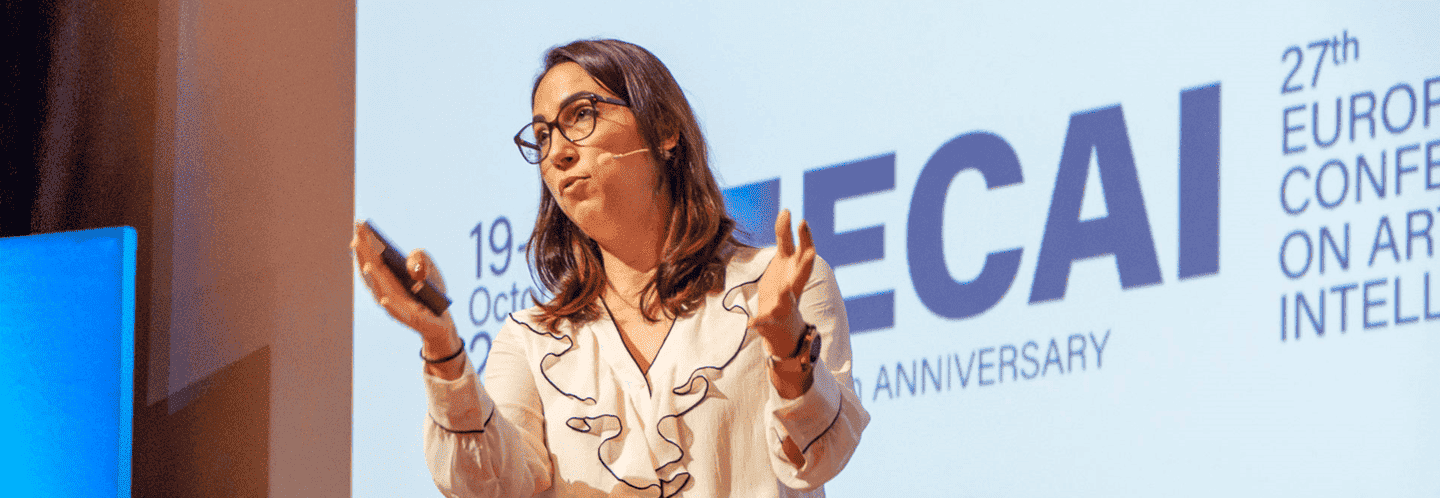
Robots "need humans to learn" how to interact with people and optimize their functions, according to Professor Iolanda Leite
The future of social robots development, those that interact and communicate with humans in social or domestic settings, is closely linked to the ability of these systems to learn and interact with people in different situations, not just the language of experts. They need humans to learn how to be more natural and efficient.
The future of social robotics development, those systems that interact and communicate with humans in social or domestic settings, is closely linked to their ability to learn from "real people and users" in order to optimize their functions and applications, as explained by Iolanda Leite, Associate Professor in the Division of Robotics, Perception, and Learning at the KTH Royal Institute of Technology (Stockholm).
In the presentation of her paper Robots (Still) Need Humans in the Loop at the European Conference on Artificial Intelligence (ECAI 2024), held from October 19 to 24 in Santiago de Compostela, Professor Iolanda Leite presented research demonstrating that intelligent robotic systems that "learn informed by human knowledge" achieve higher performance in their functions.
"The role of people is essential in the interactive learning process of robots. We advocate for a human-centered learning process that leads to responsible robot autonomy and more natural and efficient interactions. Humans help robots improve. They still need us to learn how to interact with people," she emphasized.
Iolanda Leite pointed out that in different contexts where robots interact with people and in real-world social settings, communication "can be difficult" and "becomes complicated" when the number of people interacting increases or when, for example, the robot interacts with a person who is not speaking in their native language, as the machine often interprets pauses and uncertainties in language "incorrectly."
Therefore, she stressed that "robots still need real people, not just experts," in various phases of the learning process. She provided examples of training social performance in selecting objects pointed out by humans, navigation, and also ensured that "they learn consistently, aligned with the way humans represent and prioritize information."
Leite presented several cases where conversation between humans and robots is improved through clarifications that resolve ambiguities. "Currently, AI methods have room for improvement when it comes to ambiguous commands, (for example, 'pick up the green vegetable' when several are available), so it is necessary to increase explainability to describe scenes and enable robots to overcome these ambiguities."
"A larger number of data points is good for research, but robots in the real world, when they make mistakes, need to adapt to different situations, and we must readjust the algorithm. The role of humans is essential in the interactive learning process of robots and in achieving more natural and efficient interactions," she concluded.
ECAI 2024
The European Conference on Artificial Intelligence (ECAI 2024), held from October 19 to 24 in Santiago de Compostela, brings together more than 1,600 delegates representing the global elite in Artificial Intelligence research. The event, sponsored by the European Association for Artificial Intelligence (EurAI), the Spanish Association for Artificial Intelligence (AEPIA), and organized by CiTIUS (Singular Research Center in Intelligent Technologies at the University of Santiago de Compostela - USC, co-funded by the European Union through the Galicia ERDF 2021–2027 programme), features a broad program with the presentation of the latest scientific results, conferences, debate panels, workshops, and demonstrations to highlight the contribution of AI to the development of society.
ECAI 2024, with the theme "Celebrating the Past. Inspiring the Future", marks the 50th anniversary of the first European AI conference held in Brighton in 1974. This is the second time the European Conference on Artificial Intelligence has been held in Santiago de Compostela, following the 2020 event, which was held during the COVID-19 pandemic and had to be converted to an online format, becoming a pioneering fully digital event in the world.
This edition sets a new record, both for the number of presentations, which exceed 500, and for the number of attendees and the relevance of its content. Without a doubt, all of this has made Santiago de Compostela the global capital of artificial intelligence during the week of October 19-24.